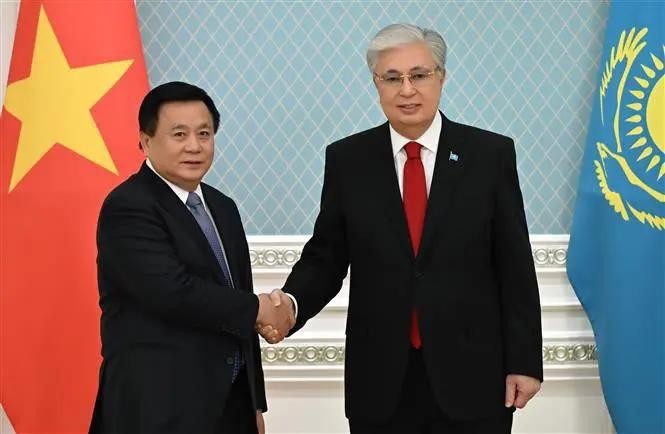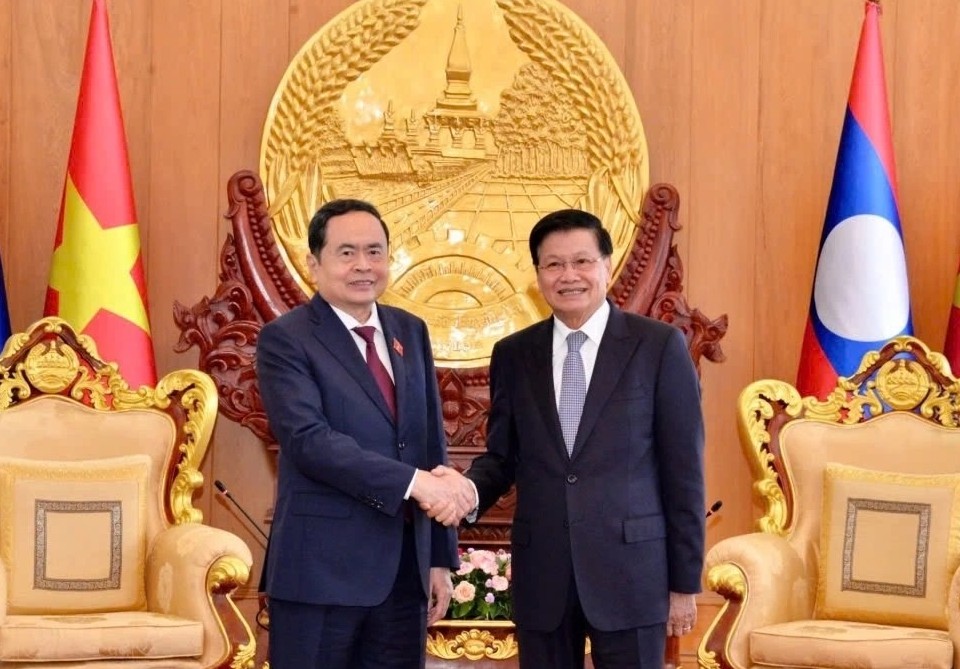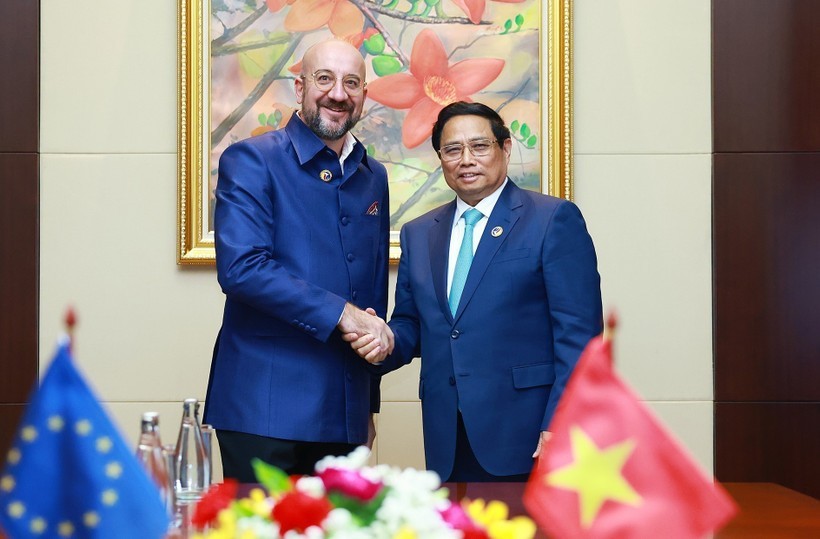Submarine Cables in East Sea: Reactions of Southeast Asian Countries (Part 2)
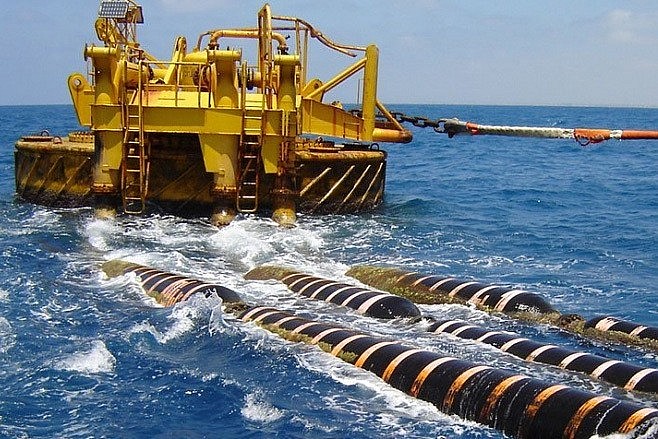 |
| Photo: thuvienphapluat |
Policy responses of Southeast Asian countries
The above analysis shows that Southeast Asian countries are facing two forces.
On the one hand, the US systematically blocks cable projects connecting the US to China through Hong Kong.
On the other hand, China's policy of restricting cable laying in the South China Sea resulted in major investors trying to identify new routes to overcome the "China problem" and connect North America directly to Southeast Asia without going through China or the East Sea.
In that context, countries such as Singapore, Indonesia, and the Philippines try to maintain an open policy to have opportunities to cooperate with both the US and China, prioritizing the development of underground cable systems, improving legal policies, aiming to strengthen connectivity and digitalization of the country.
Singapore
Singapore is still trying to find a balance, seek opportunities, minimize risks in major country competition for submarine cables in the East Sea, and diversify cable cooperation with other developed countries.
Singapore sees the escalation of US-China competition as bringing more challenges than opportunities.
From an opportunity perspective, Singapore sees the US increasing economic and diplomatic investment as a counterweight to China, bringing bargains to Singapore.
For example, the two projects Apricot and Echo connecting California and Guam (USA) with Singapore are expected to help Singapore strengthen its position as an important data center for Google and Meta.
From a challenges perspective, competition and technological separation will put Singapore in a difficult position.
One of the two powers could seek to separate Singapore from the other, despite the vital needs of Singapore, which owes its existence to its transit position, accessibility and connectivity to the rest of the world.
The general policy of Singapore's foreign policy is built on three pillars of strengthening relations with the US, limiting tensions with China and improving relations with other countries (including ASEAN and Australia).
Singapore does not limit its national potential to the US-China picture, but seeks to expand into other areas in the direction of diversifying partners and fields.
Indonesia
Indonesia is expected to play an important role in digital architecture in the Pacific. As of 2022, Indonesia has 217 submarine cables and 42 underwater pipelines. In the context of geopolitical competition, Indonesia seeks to benefit from both the US and China.
For the US, Indonesia is the main beneficiary of the world's longest fiber optic telecommunications cable connecting the Southeast Asian peninsula directly with the US.
Trans Pacific Networks (TPN) is the first submarine cable route directly connecting Singapore, Indonesia and the US, and is forecast to be capable of serving a number of markets in Southeast Asia and the Pacific.
Regarding China, China and Indonesia soon had cooperation projects in the field of telecommunications and submarine cables, but are currently facing difficulties in operation and deployment.
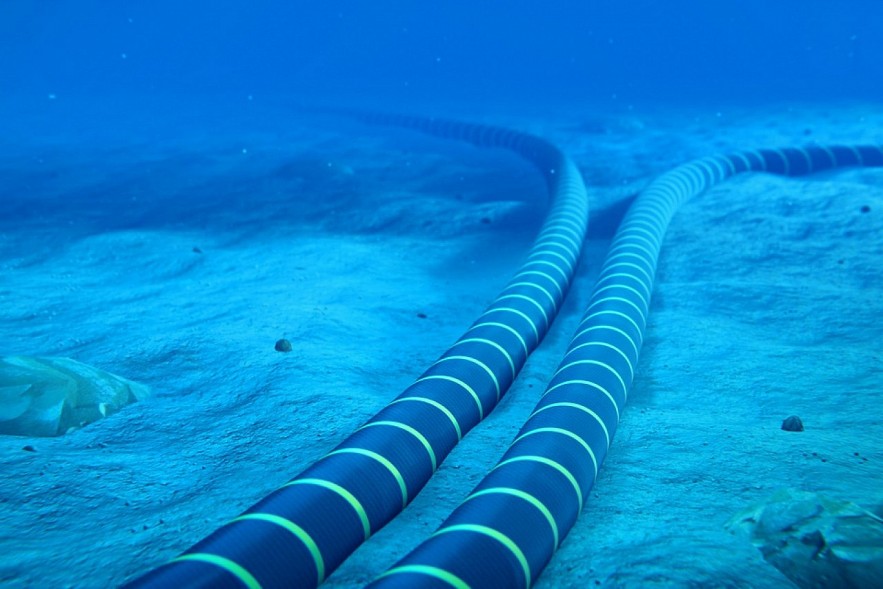 |
| Photo: AFP |
Malaysia
Malaysia is caught in great power competition and trying to maintain cooperation both with the US and China:
After Malaysia introduced regulations on the Transport Law that were unfavorable for foreign laying and repair ships operating in Malaysian waters, the country was excluded from Facebook and Google's Apricot, Echo and Bifrost cables across the East Sea.
This not only reduces the quality of Internet connections but also hinders investment in data centers by both local and global companies.
Cooperation with China is still Malaysia's priority because of barriers in cooperation with the US. The pragmatic approach of American technology companies is likely to indirectly encourage Malaysia to move closer to China.
Policy recommendations for Vietnam
With the reality of submarine cables in the East Sea and the policy responses of some regional countries, some suggestions for Vietnam are as follows.
First, Vietnam needs to recognize submarine cables as "essential infrastructure" due to the importance of submarine cables to national security and development.
Second, Vietnam can aim to become an undersea cable center.
Currently, Singapore has limited space, so it reached saturation and marginal profits are gradually decreasing in building new cables.
Furthermore, Singapore is delaying the construction of new data centers and cable stations due to high power consumption. Therefore, the world is looking for alternative regional centers, including Vietnam. This is an opportunity that we should take advantage of.
Third, Vietnam needs to ensure regulations and legal procedures are clear and predictable.
Fourth, the government needs to pay attention to protecting underwater infrastructure and network security, arranging submarine cables to avoid negative impacts of nature, human incidents, and ship activities.
Fifth, Vietnam can refer to Malaysia's submarine cable repair model because the number of maintenance ships is currently lacking compared to the needs in the East Sea.
Sixth, Vietnam needs to focus on choosing reliable partners and diversifying partners.
In addition to the US and China, Vietnam can also consider promoting cooperation in the field of submarine cables with some other countries such as Japan and France.
The goal of partner diversification is to reduce disruption, increase resilience and reduce dependence on any one party in submarine cable development.
 | Vietnamese Veterans Association in Germany Promotes Tradition of Uncle Ho's Soldiers Vietnamese veterans in Germany uphold the noble traditions and qualities of Uncle Ho's soldiers in new era. |
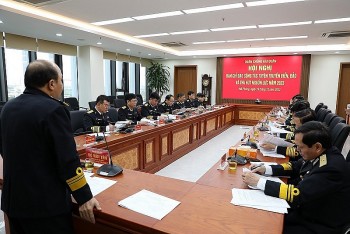 | Propaganda and Communication on the Sea and Islands in 2023 In 2023, the People's Navy held many activities with diverse forms and practical content to contribute to providing information and ideological orientation for officers, soldiers, ... |
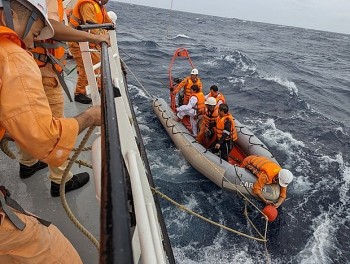 | Vietnam Maritime Rescue Force Supports Fishermen At Sea The Vietnam Maritime Search and Rescue Coordination Center (Vietnam MRCC), home of the orange-shirted soldiers, carries the mission of protecting fishermen at sea and international ... |
Recommended
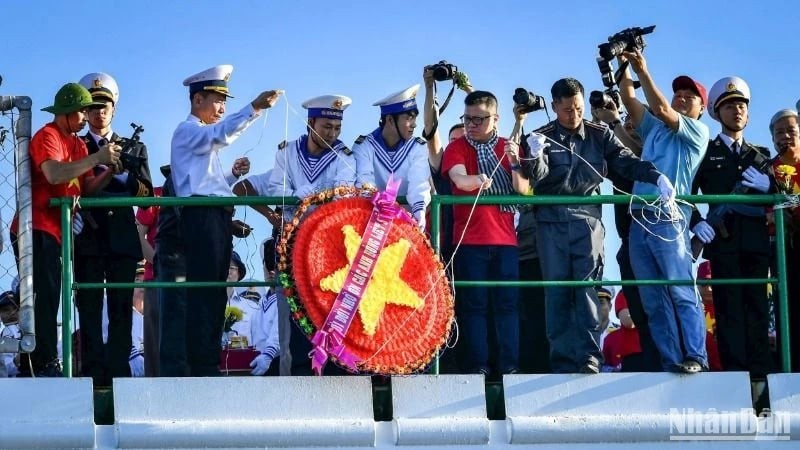 Seas and islands
Seas and islands
Spreading the Love for the Fatherland from the Sea and Islands
 Seas and islands
Seas and islands
Vietnam Endorses Common Voice on Ocean Jurisdiction
 Seas and islands
Seas and islands
Dialogue as Key to Settling Disputes and Advancing Law of the Sea
 Seas and islands
Seas and islands
RoK Navy Ship Pays Friendly Visit to Da Nang City
Popular article
 Seas and islands
Seas and islands
Naval Region 5 Promotes Reading Culture, Fosters Patriotism
 Seas and islands
Seas and islands
Coast Guard Region 2 Command Hosts Philippine Coast Counterpart
 Seas and islands
Seas and islands
Vietnam - Thailand Navy: Coordination to Well Address Problems at Sea
 Seas and islands
Seas and islands





